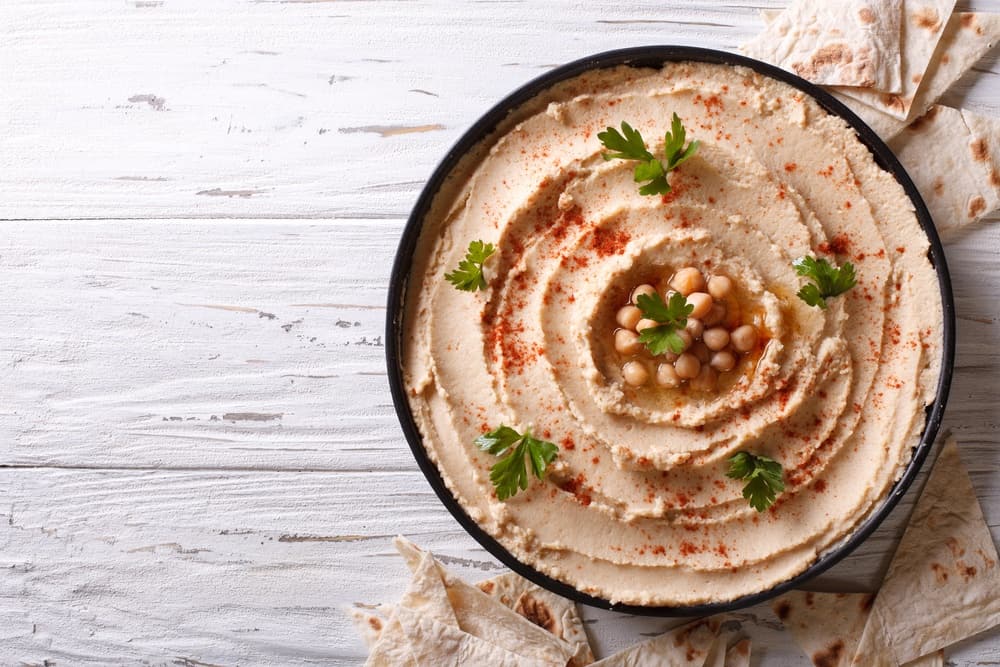If you’re into Mediterranean food, then you must have tried Hummus. If not, then it is surely something you wouldn’t want to miss. Hummus is a tangy tasting dip made from chick peas and a variety of herbs and spices.
I personally like using Hummus on warm pita bread as a snack at home. If you’re storing Hummus at home just like me, it is important to know exactly how long does Hummus last.
This is why for this article; I will be sharing with you a bunch of tips regarding your Hummus’ storage life.
How Long Does Hummus Last?

Fresh Hummus should give off an earthy taste because of the chickpeas along with a bitter taste because of the Tahini. It should also leave you with a tangy flavour because it also contains some lemon juices.
What’s more is that your Hummus should have a fine smooth consistency that’s not too watery.
Fresh Hummus usually smells good and earthy. So when you get a rotten or sour smell from your Hummus, it might be spoiled already.
Another thing to look for when checking your Hummus is the consistency. Watery Hummus means that it is no longer safe to eat. Hummus can take weeks or months before being spoiled, but its shelf life will highly depend on its type.
Types of Hummus and their Shelf-life

Now each Hummus is not made the same, which means each can vary in storage life. There are ready-made Hummus with set expiration dates at your local markets and grocery stores, and there is also homemade Hummus that can have a shorter shelf-life since it is completely made without preservatives.
If you have store-bought Hummus at hand, then you may check for the expiration date label on the packaging. However, if you have homemade Hummus made with fresh ingredients, then you might be looking at a shelf life of about a week when stored in a cool place.
Aside from being store-bought or homemade, the storage also plays an important role in your Hummus’ shelf life. Hummus should be stored in cool places such as a refrigerator or freezer to keep it tasting fresh.
Another thing that would affect the shelf-life of your Hummus is if it has been opened or not. Store-bought Hummus is usually sealed very well to ensure freshness. Once a store-bought Hummus’ lid has been opened, its shelf-life will decrease significantly.

Store-bough Hummus, when still unopened, can last for three to ten days when stored in the fridge. Once it has been opened, you will be able to keep it fresh in the fridge for only four to six days.
However, if you plan on making it last longer than a week, I suggest you keep it in the freezer instead. An unopened bottle or jar of Hummus will last for six to eight months when frozen.
It could also last as long even when it’s opened, but you would still have to check for signs of spoilage before you thaw and eat it.
When it comes to homemade Hummus, the shelf-life is really shorter. A freshly made batch of Hummus stored in either an unopened or opened container can last three to five days on the fridge.
It can also last longer when frozen in the freezer, but like I said, you would still have to check if it’s still okay to eat after you thaw it.
Which Hummus Should You Get?

I personally recommend making your own batch of Hummus if you have the right ingredients and cookware at hand because it can be very easy and quick to make.
Even though homemade Hummus lasts for a shorter amount of time, I still prefer its fresh taste than those that are store-bought.
If you don’t have time to make your own Hummus, or if you want something that will just last a little bit longer, then go for the store-bought Hummus instead.
Store-bought Hummus is almost as great as freshly made Hummus anyway, and it would be perfect for you if you want something that’s ready to eat out of the jar.
Keeping Your Hummus Fresh

Well it seems like all you need is your good old fridge to keep your Hummus fresh. If you like using Hummus as a dip for your favourite snacks or as a thick spread on your breakfast toast, then always remember to keep it in a cool dry place.
And if you’re planning on storing it for months, always check if it’s still okay to eat before you add it to your meals.
If you liked reading this article and would like to read more just like it, then please leave us your feedback in the comment box below. Until next time, enjoy!



